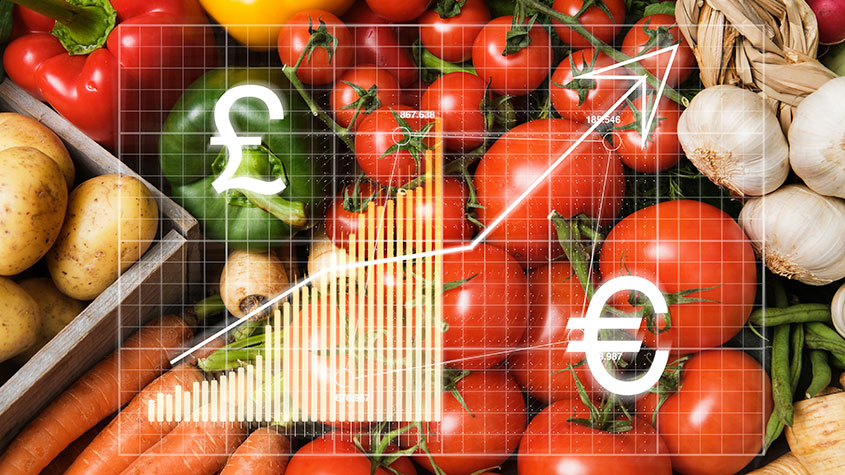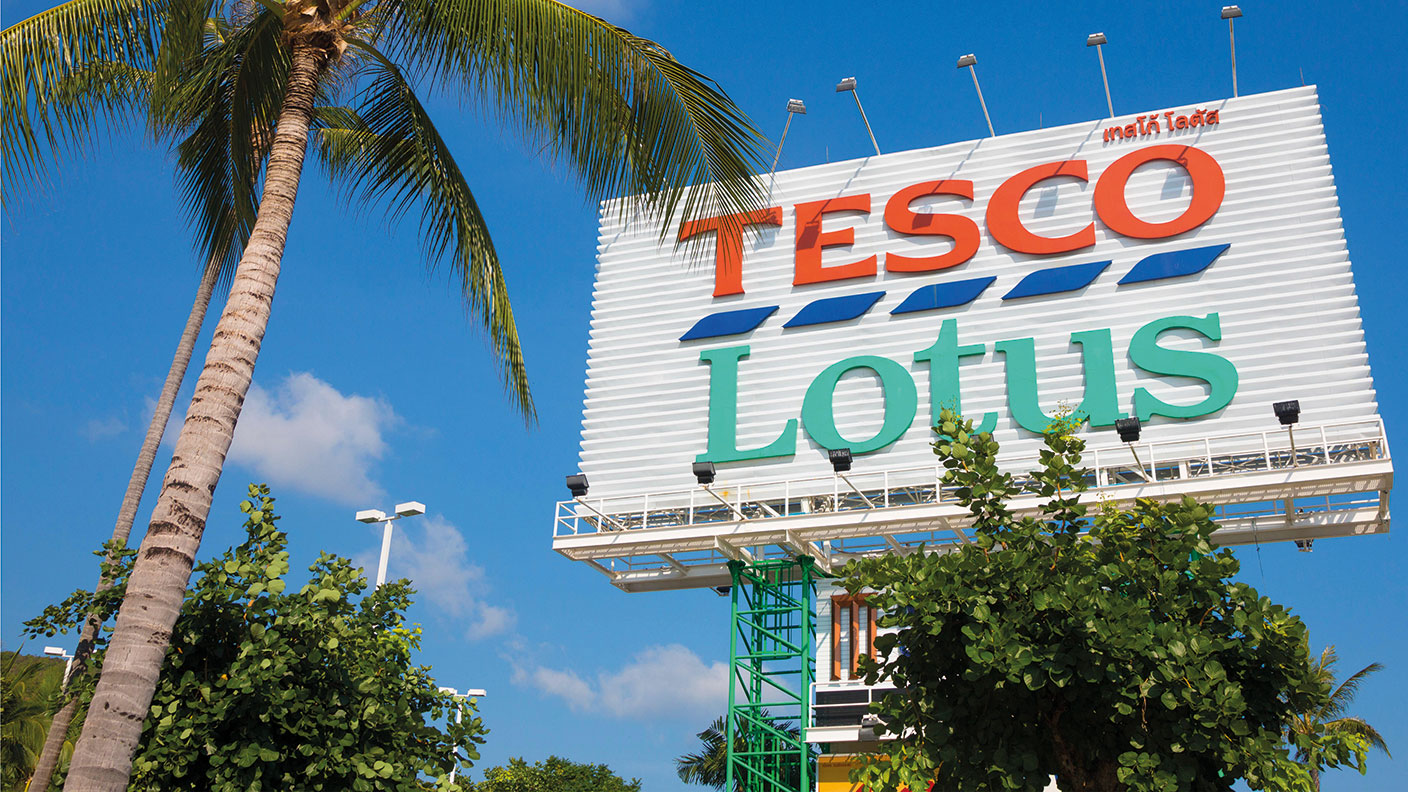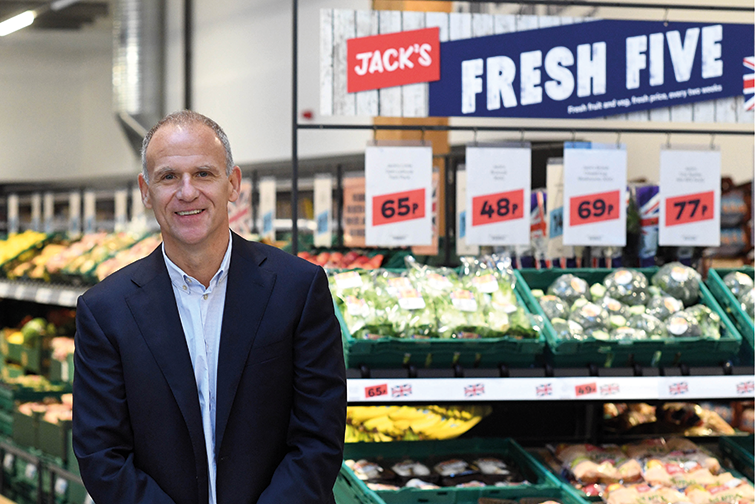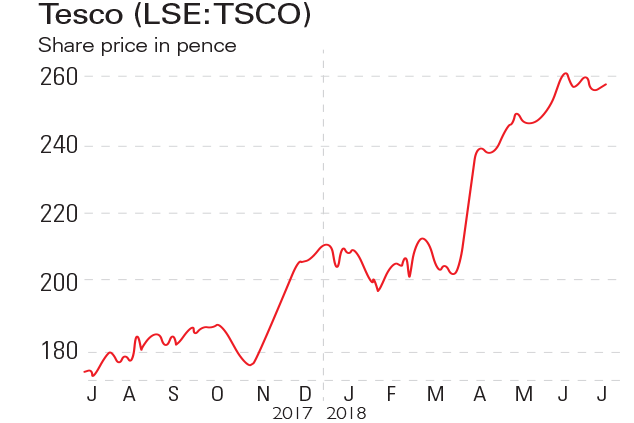Get the latest financial news, insights and expert analysis from our award-winning MoneyWeek team, to help you understand what really matters when it comes to your finances.
You are now subscribed
Your newsletter sign-up was successful
Want to add more newsletters?

Twice daily
MoneyWeek
Get the latest financial news, insights and expert analysis from our award-winning MoneyWeek team, to help you understand what really matters when it comes to your finances.

Four times a week
Look After My Bills
Sign up to our free money-saving newsletter, filled with the latest news and expert advice to help you find the best tips and deals for managing your bills. Start saving today!

Call it "Tesca", says Katherine Griffiths in The Times. Supermarket giant Tesco has entered into a three-year strategic alliance with the French chain Carrefour, clubbing together to buy own-label products and some goods not for resale, such as trolleys and cleaning equipment. The deal is expected to be formally agreed in the next two months.
Until recently, a tie-up of this kind "would have been unthinkable", says Graham Ruddick in The Times. But Tesco has come under intense pressure from online retailers and German discounters such as Aldi and Lidl, and the sector is consolidating in the UK as the recent merger between Sainsbury's and Asda illustrates. In France, Carrefour "has been deteriorating for years", says Andrea Felsted on Bloomberg. And while it might not have the Germans to deal with, it has suffered "fierce competition" from rival E.Leclerc.
For all that food retailing "seems to have turned into a game of choose a partner", it is "too soon to speculate about a formal merger", says Nils Pratley in The Guardian. However, it is clearly a possibility if the two get along well. They complement each other nicely. In Europe, Tesco operates in the UK, Ireland and eastern Europe, while Carrefour has a strong presence in France, Italy and Spain. And Tesco "was long ago forced to abandon its go-it-alone approach to global expansion after it flopped in the USand China".
MoneyWeek
Subscribe to MoneyWeek today and get your first six magazine issues absolutely FREE

Sign up to Money Morning
Don't miss the latest investment and personal finances news, market analysis, plus money-saving tips with our free twice-daily newsletter
Don't miss the latest investment and personal finances news, market analysis, plus money-saving tips with our free twice-daily newsletter
Savings could add up to as much as €450m a year, retail analyst James Grzinic told Jonathan Eley and Harriet Agnew in the Financial Times. Own-label products carry higher margins and are crucial to bolstering profitability. Higher volumes on "commoditised items" translate into lower prices from suppliers.
The deal will certainly "help cut prices while rebuilding profitability", says the FT's Lex column. It will be especially helpful for competing with Lidl and Aldi, whose range is skewed towards cheap own-brand labels. Still, let's not get carried away. There is "little prospect of recovering the buoyant margins of a decade ago", and supermarkets "will not get to play with monopoly money anytime soon".
Bad news for small suppliers
Regulators aren't likely to question the alliance, says Patrick Hosking in The Times. Not only is there no geographical overlap, but "it's hard to challenge the 800-pound gorilla when the savings squeezed from suppliers are passed on to consumers". Suppliers, however, are another matter. The two companies want to save money by extracting lower prices from big consumer-goods companies such as Nestl, Unilever and Kraft Heinz, which achieve profit margins of 15%-plus.
But "the market thinks Unilever et al will be perfectly able to look after themselves", says Pratley. Their share prices have remained robust. Those who should be worried are the small suppliers. All the big supermarkets have insisted that "local producers are not in [their] sights". Take that with a huge pinch of salt. "Life has rarely worked out pleasantly for the little folk when the squeeze is on."
Britain's ten most-hated shares
| Company | Sector | Short interest on 2 July (%) | Short interest on 29 May (%) |
| Pets At Home | Pet retailers | 13.08 | 13.22 |
| Debenhams | General retailers | 12.91 | 13.87 |
| The Restaurant Group | Restaurants | 12.61 | 11.36 |
| Marks & Spencer | General retailers | 11.43 | 11.54 |
| GVC Holdings | Gaming operators | 11.36 | 11.36 |
| Greencore Group | Convenience food | 11.01 | 13.54 |
| IQE | Semiconductors | 10.65 | 8.98 |
| Aggreko | Power supplies | 10.10 | 10.39 |
| Inmarsat | Telecoms | 9.65 | NEW ENTRY |
| Anglo American | Mining | 9.57 | 9.07 |
These are the ten most unpopular firms in the UK, based on the percentage of stock being shorted (the "short interest"). Short-sellers aim to profit from falling prices, so it can be useful to see what they're betting against. The list can also highlight stocks that might bounce on unexpectedly good news when short-sellers are forced out of their positions (a "short squeeze"). Satellite group Inmarsat is a new entry. It recently lost its monopoly on international maritime distressed communications, and hopes of a bidding war for the group have not been fulfilled.
City talk
The US Department of Justice spent two years looking into AT&T's acquisition of Time Warner, says The New York Times a deal between two firms that didn't compete directly with each other. So it was "stunning" to see Disney's $21bn purchase of Fox's assets being approved after just six months: the combined entity will account for half of US box-office revenue this year. Politics isn't supposed to play a part in antitrust decisions. Yet Trump damned the AT&T deal as "not good for the country" and he "regularly lambasts" Time Warner's TV news network, CNN. But he's "all praise when it comes to 21st Century Fox and its boss, Rupert Murdoch".
Shares in commodities giant Glencore fell by 13% after the US Department of Justice demanded it hand over ten years of records on its activities in Congo, Venezuela and Nigeria, in connection with a money-laundering investigation.But anyone who bought its shares did so "in the knowledge that something like this might happen", says Chris Bryant on Bloomberg.If you're trading 90 commodities in 50 countries you can't avoid "doing business in places where bribery is not uncommon".
Electric-car company Tesla finally hit its long-delayed production target for the Model 3 saloon after producing 5,000 of them in a week. CEO Elon Musk declared Tesla a "real car company", says BBC Online, and rushed on to social-media network Twitter to proclaim "7,000 cars, 7 days, Tesla Team". But Musk was promptly slapped down by Ford's chairman & CEO for the group's European, Middle Eastern and African divisions, Steven Armstrong. He retorted: "7,000 cars, circa 4 hours, Ford Team".
Get the latest financial news, insights and expert analysis from our award-winning MoneyWeek team, to help you understand what really matters when it comes to your finances.

-
 Should you buy an active ETF?
Should you buy an active ETF?ETFs are often mischaracterised as passive products, but they can be a convenient way to add active management to your portfolio
-
 Power up your pension before 5 April – easy ways to save before the tax year end
Power up your pension before 5 April – easy ways to save before the tax year endWith the end of the tax year looming, pension savers currently have a window to review and maximise what’s going into their retirement funds – we look at how
-
 How to profit from rising food prices: which stocks should you invest in?
How to profit from rising food prices: which stocks should you invest in?Tips Food prices are rising – we look at the stocks to avoid and the one to invest in this sector.
-
 Tesco looks well-placed to ride out the cost of living crisis – investors take note
Tesco looks well-placed to ride out the cost of living crisis – investors take noteAnalysis Surging inflation is bad news for retailers. But supermarket giant Tesco looks better placed to cope than most, says Rupert Hargreaves.
-
 Tesco sells its retail subsidiary in Thailand and Malaysia for £8bn
Tesco sells its retail subsidiary in Thailand and Malaysia for £8bnNews Tesco has agreed to sell its southeast Asian operations to Thai conglomerate Charoen Pokphand for £8.2bn in cash.
-
 Tesco should keep its Asian assets
Tesco should keep its Asian assetsOpinion The £7bn that Tesco could get for its Tesco Lotus business in Asia looks enticing. But holding on to it would be smarter, says Matthew Lynn.
-
 Tesco cashes out of the mortgage business
Tesco cashes out of the mortgage businessFeatures Tesco Bank has left the mortgage market by selling its £3.7bn loan book. Its 23,000 customers will be moved to the Halifax, a subsidiary of Lloyds.
-
 Tesco wields the axe
Tesco wields the axeFeatures Britain’s biggest supermarket is cutting back on staff and fresh food. Will the move prove counterproductive? Matthew Partridge reports.
-
 If you'd invested in: Tesco and Associated British Foods
If you'd invested in: Tesco and Associated British FoodsFeatures Tesco has seen its market value rise almost 50% in a year, while AB Foods has seen shares slide despite a rise in profits.
-
 Lessons from Tesco’s turnaround
Lessons from Tesco’s turnaroundOpinion Retailers have it tough, but Tesco has shown that it’s still possible to thrive, says Matthew Lynn.
